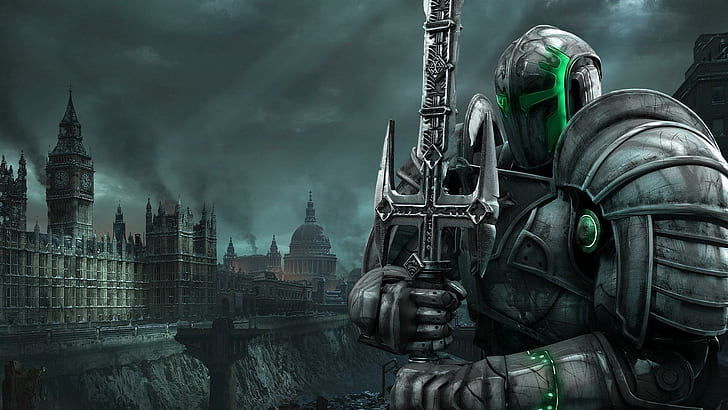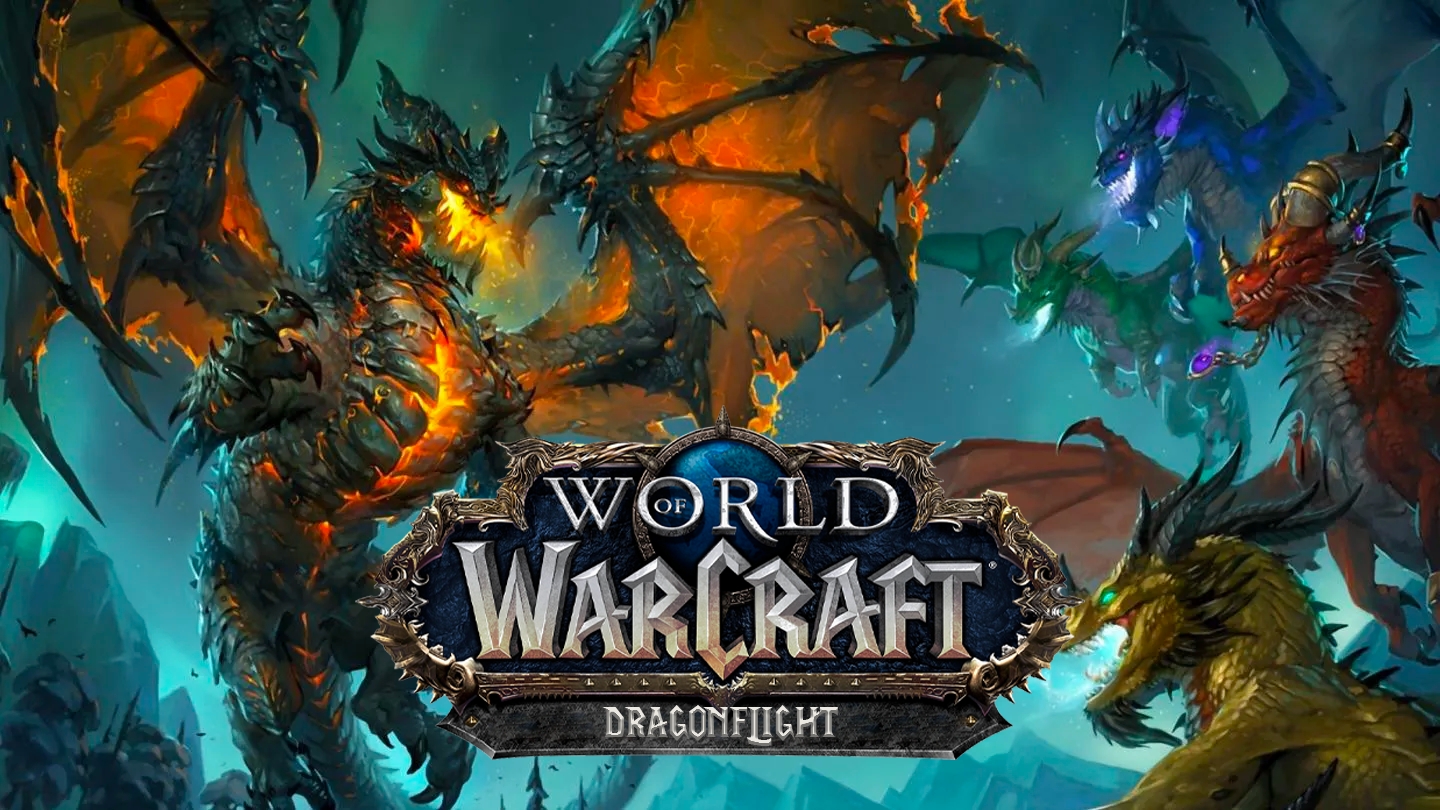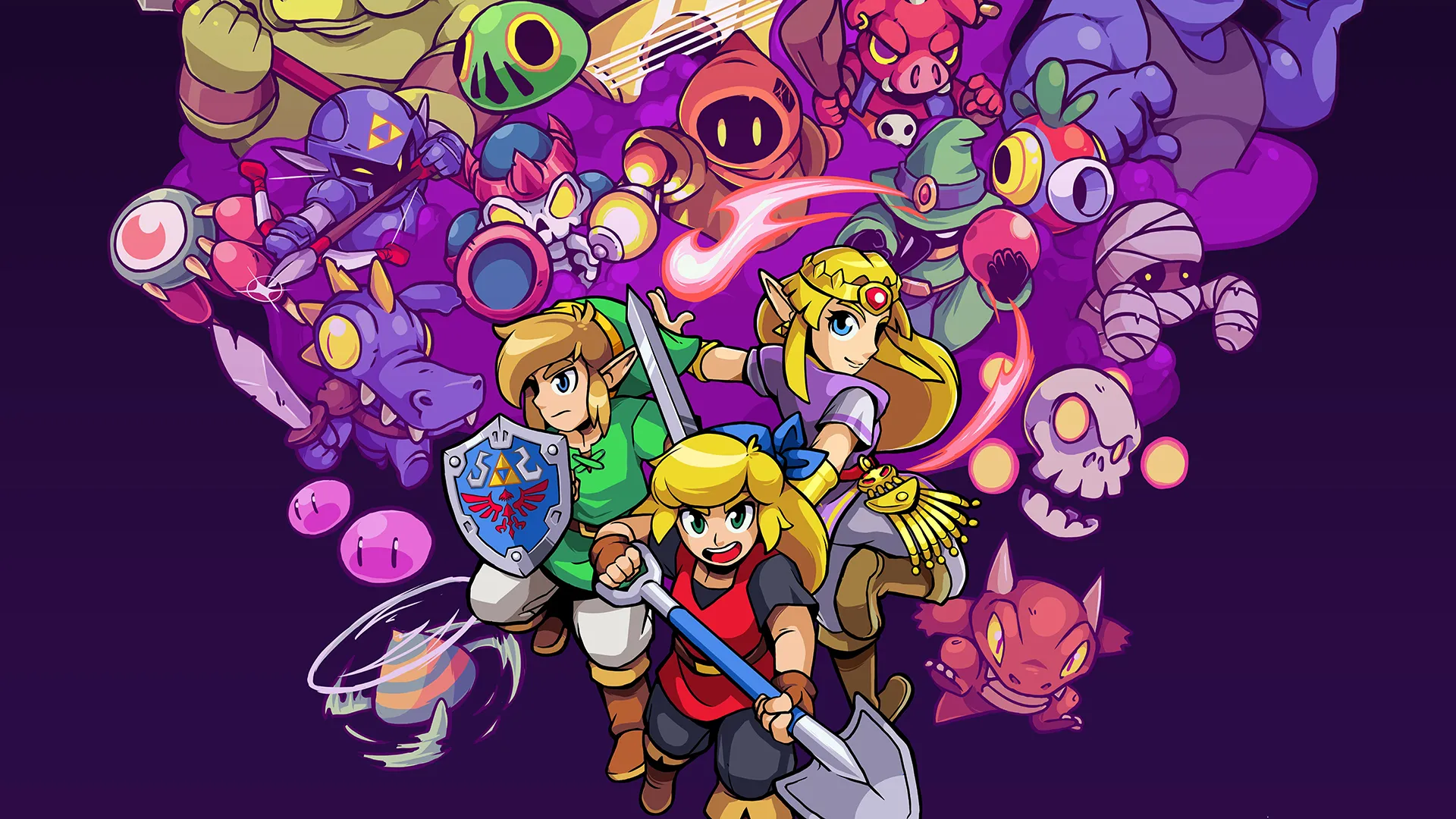Introduction to Hellgate: London
Hellgate: London, developed by Flagship Studios and released in 2007, is an action role-playing game (ARPG) that combines elements of first-person shooter (FPS) mechanics within a post-apocalyptic London setting. The game is set in a dark, dystopian future where humanity is on the brink of extinction due to a demonic invasion. As one of the most ambitious games of its time, Hellgate: London promised a blend of intense combat, deep customization, and an engaging storyline. However, despite its potential and high expectations, the game faced a mixed reception upon release.
This article offers a comprehensive review of Hellgate: London, breaking down its gameplay, exploring its development history, analyzing its strengths and weaknesses, and answering common questions about the game.
Development History and Release of Hellgate: London
The Genesis of Hellgate: London
Flagship Studios: The Makers Behind the Game
Flagship Studios was founded by key developers who had previously worked on Blizzard North’s Diablo series. With a strong pedigree in action RPGs, the team set out to create a game that would redefine the genre by integrating FPS elements with the traditional RPG framework. Hellgate: London was envisioned as a groundbreaking title that would combine the best aspects of both genres while introducing new gameplay mechanics.
Initial Hype and Expectations
From the outset, Hellgate: London generated significant buzz within the gaming community. The idea of a Diablo-like experience set in a futuristic, demon-infested London was intriguing, and the game’s development team had a reputation for delivering high-quality RPG experiences. Trailers and previews showcased the game’s dark, Gothic atmosphere, procedurally generated environments, and deep customization options, building anticipation among gamers and critics alike.
The Launch of Hellgate: London
Release Date and Platform Availability
Hellgate: London was officially released on October 31, 2007, for Microsoft Windows. The game was positioned as a hybrid between single-player and multiplayer experiences, with online features that would allow players to team up and tackle the game’s challenges together.
Reception and Early Reviews
Upon its release, Hellgate: London received a mixed reception. While many praised the game’s atmosphere, setting, and ambitious design, others criticized it for technical issues, repetitive gameplay, and unfulfilled promises. The game’s launch was plagued by bugs, performance problems, and server issues, which significantly impacted the overall player experience.
Hellgate: London Gameplay Mechanics
Core Gameplay Overview
Hellgate: London is an action RPG that allows players to choose from several different classes, each with unique abilities and playstyles. The game is set in a procedurally generated world, meaning that environments, enemy placements, and loot are randomized each time the player enters a new area.
Character Classes and Factions
Players can choose from six different character classes, each belonging to one of three factions:
- Templars: Focused on melee combat and defense. Classes include the Guardian and the Blademaster.
- Cabalists: Specialize in dark magic and summoning. Classes include the Summoner and the Evoker.
- Hunters: Experts in ranged combat and technology. Classes include the Marksman and the Engineer.
Each class offers a distinct gameplay experience, encouraging players to explore different strategies and combat styles.
Customization and Progression
Character customization is a key feature in Hellgate: London. Players can equip their characters with a wide variety of weapons, armor, and magical items, each of which can be upgraded and modified to suit their playstyle. As players progress through the game, they earn experience points, which can be used to unlock new abilities and enhance existing ones.
Combat System and Mechanics
First-Person and Third-Person Combat
Hellgate: London allows players to switch between first-person and third-person perspectives, depending on their preference and the situation at hand. This flexibility is particularly useful in combat, where different perspectives can offer tactical advantages.
- First-Person Mode: Ideal for ranged combat classes like the Marksman, where precision aiming is crucial.
- Third-Person Mode: Better suited for melee classes like the Blademaster, providing a broader view of the battlefield.
Skill Trees and Abilities
Each character class in Hellgate: London has a unique skill tree, allowing players to develop their characters in a variety of ways. Skills range from passive bonuses to powerful active abilities that can turn the tide of battle. The game encourages players to experiment with different builds and find the combination of skills that best suits their playstyle.
Exploration and Level Design
Procedurally Generated Levels
One of Hellgate: London’s standout features is its procedurally generated levels. This design choice ensures that each playthrough is different, as the layout of environments, enemy placements, and loot are randomized. This adds a significant amount of replayability to the game, as no two sessions are exactly alike.
Variety of Environments
The game takes players through a variety of environments, each with its own unique challenges and visual style. From the ruined streets of London to underground tunnels and ancient catacombs, Hellgate: London offers a diverse range of settings that contribute to its dark, atmospheric tone.
Multiplayer and Online Features
Cooperative Multiplayer
Hellgate: London offers both single-player and multiplayer modes. In multiplayer, players can team up to tackle the game’s challenges together, taking on more difficult enemies and completing quests as a group. The cooperative aspect of the game adds another layer of depth to the experience, as players can combine their abilities and strategies to overcome the toughest foes.
Server Issues and Online Play
At launch, Hellgate: London’s online features were hampered by server issues and connectivity problems. These issues were a major source of frustration for players, particularly those who were looking forward to the game’s multiplayer component. Although some of these problems were addressed in later patches, the initial rocky start left a lasting impact on the game’s reputation.
Hellgate: London Reviews and Critical Reception
Critical Reception at Launch
Upon release, Hellgate: London received a wide range of reviews, reflecting both the game’s potential and its shortcomings.
Positive Aspects
- Innovative Gameplay: Many reviewers praised the game’s innovative blend of FPS and RPG mechanics. The ability to switch between first-person and third-person perspectives, combined with deep character customization, was seen as a fresh take on the genre.
- Atmosphere and Setting: The game’s dark, Gothic atmosphere and detailed depiction of a demon-infested London were widely praised. Reviewers noted that the game’s setting was one of its strongest elements, contributing to an immersive and engaging experience.
Negative Aspects
- Technical Issues: Hellgate: London was plagued by technical problems at launch, including bugs, performance issues, and server instability. These issues were a major point of criticism, as they significantly detracted from the overall experience.
- Repetitive Gameplay: Despite the procedurally generated levels, some players found the gameplay to be repetitive. The core loop of combat and exploration, while initially engaging, could become monotonous over extended play sessions.
Post-Launch Updates and Community Response
Patches and Fixes
In the months following its release, Flagship Studios released several patches aimed at addressing the game’s technical issues. While these updates improved stability and performance, they were not enough to fully redeem the game’s reputation.
Modding Community and Fan Support
Despite its rocky start, Hellgate: London has maintained a dedicated fanbase. The modding community has played a crucial role in keeping the game alive, creating mods that add new content, fix remaining bugs, and enhance the overall experience. Fan forums and online communities continue to support the game, sharing strategies, discussing lore, and helping new players get started.
Hellgate: London’s Legacy
Influence on the ARPG Genre
While Hellgate: London did not achieve the commercial success that its developers had hoped for, it has left a lasting impact on the ARPG genre. The game’s hybrid approach to gameplay, combining FPS mechanics with RPG elements, has influenced later titles and continues to be a point of reference for developers looking to innovate within the genre.
Revival Attempts and Re-Releases
In the years following its initial release, Hellgate: London has seen several attempts at revival. The game was re-released as Hellgate Global, a free-to-play version that included additional content and improved online features. While these efforts have kept the game in the public eye, they have not significantly altered its standing within the gaming community.
Strengths and Weaknesses of Hellgate: London
Strengths
Unique Setting and Atmosphere
Hellgate: London’s dark, Gothic setting is one of its most compelling features. The depiction of a demon-infested London, combined with the game’s detailed environments and atmospheric music, creates an immersive experience that draws players into its world.
Hybrid Gameplay Mechanics
The game’s blend of FPS and RPG mechanics offers a fresh and innovative take on both genres. The ability to switch between perspectives, combined with deep character customization and procedurally generated levels, provides a unique and engaging gameplay experience.
Replayability
The procedurally generated levels and wide range of character classes contribute to the game’s replayability. Each playthrough offers a different experience, encouraging players to experiment with different builds and strategies.
Weaknesses
Technical Issues at Launch
Hellgate: London’s launch was marred by technical problems, including bugs, performance issues, and server instability. These issues were a major source of frustration for players and significantly impacted the game’s reception.
Repetitive Gameplay
Despite its innovative mechanics, the game’s core loop can become repetitive. The combat, while initially engaging, can feel monotonous over time, and the procedurally generated levels, while varied, do not
always offer enough variety to keep the experience fresh.
Missed Potential
Many players and critics felt that Hellgate: London did not fully live up to its potential. The game’s ambitious concept and strong development team set high expectations, but the final product fell short in several key areas.
Hellgate: London Game Official Trailer by Gameplay Breakdown Review
Frequently Asked Questions (FAQs): About Hellgate: London
Q1: What is Hellgate: London?
A: Hellgate: London is an action role-playing game (ARPG) with first-person shooter (FPS) elements, set in a post-apocalyptic London overrun by demons. The game was developed by Flagship Studios and released in 2007.
Q2: Who developed Hellgate: London?
A: Hellgate: London was developed by Flagship Studios, a team that included former Blizzard North developers who had previously worked on the Diablo series.
Q3: What platforms is Hellgate: London available on?
A: Hellgate: London was originally released for Microsoft Windows. A free-to-play version, Hellgate Global, was later made available online.
Q4: What are the key gameplay features of Hellgate: London?
A: Key gameplay features of Hellgate: London include its hybrid FPS/RPG combat system, procedurally generated levels, character customization, and a mix of melee and ranged combat.
Q5: What character classes are available in Hellgate: London?
A: Players can choose from six character classes across three factions: Templars (Guardian, Blademaster), Cabalists (Summoner, Evoker), and Hunters (Marksman, Engineer).
Q6: How was Hellgate: London received by critics?
A: Hellgate: London received mixed reviews upon release. While praised for its innovative concept and atmosphere, it was criticized for technical issues, repetitive gameplay, and unfulfilled potential.
Q7: Is Hellgate: London still playable today?
A: Yes, Hellgate: London is still playable today, particularly through fan-supported mods and re-releases like Hellgate Global.
Q8: Has Hellgate: London influenced other games?
A: Yes, while not a commercial success, Hellgate: London’s blend of FPS and RPG mechanics has influenced other games in the genre and remains a reference point for developers.
Q9: Are there any mods available for Hellgate: London?
A: Yes, the modding community has created a variety of mods for Hellgate: London, including content expansions, bug fixes, and gameplay enhancements.
Q10: What was the most significant issue at Hellgate: London’s launch?
A: The most significant issue at launch was the technical problems, including bugs, performance issues, and server instability, which significantly detracted from the overall player experience.
Conclusion: The Legacy of Hellgate: London
Hellgate: London remains a fascinating case study in the history of video games. Despite its mixed reception and technical issues, the game’s ambitious attempt to blend genres and create a unique, immersive world has left a lasting impact on the ARPG genre. While it may not have achieved the success its developers hoped for, Hellgate: London has maintained a dedicated fanbase and continues to be a topic of discussion among gamers. Whether you’re a fan of ARPGs, FPS games, or just interested in the history of video games, Hellgate: London is worth exploring for its innovative approach and the lessons it offers about the challenges of game development.



